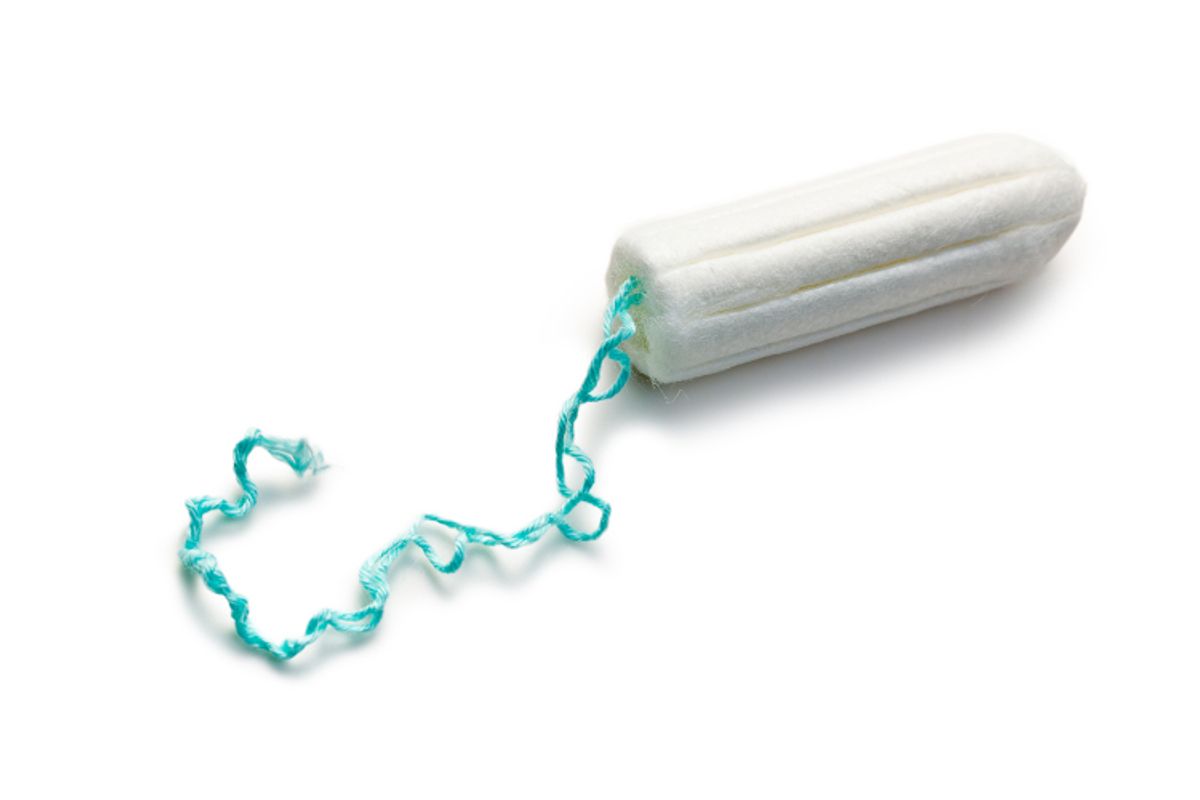Several years ago, McSweeney's posted a piece in its section for "Open Letters to People or Entities Who Are Unlikely to Respond" addressed to Mr. James Thatcher, Brand Manager at Procter & Gamble. The letter called out male "feminine hygiene product" marketers for their ludicrous efforts to sell maxi pads, without having any idea what it's like to have "a little F-16" in their pants, let alone a period. When I first read it, shortly after my own first "visit from Aunt Flo," I thought it was hilarious. It was, and still is, but it's also unfortunately accurate.
As the Huffington Post reported on Monday, male executives dominate the "feminine hygiene" industry, which is probably why we talk about "feminine hygiene" instead of the totally natural bodily experience women have every month: PERIODS. There's been a shift in the way we talk about periods with the addition of female executives to the marketing teams of several major menstrual product brands, such as Kotex and Always. (It was, unsurprisingly, a woman who finally took the leap to replace that weird bug juice-looking blue liquid commonly used in maxi pad commercials with a single dot of red blood in a groundbreaking 2010 Always ad.)
But it isn't just female executives who are changing the historically stigmatized menstruation conversation. According to the Daily Dot, young women are opening up about their periods and taking to YouTube with their stories and advice. Like their ever-popular beauty-vlogging counterparts, period vloggers are sharing product reviews, instructional guides and pertinent information -- most of which, writer Samantha Allen notes, is missing from most shame-inducing advertisements:
The conversation around periods in the girl vlogging scene is miles beyond what you’d find in a corporate pamphlet or a bizarrely figurative commercial or an awkward talk with your mom. Most noticeably, girl vloggers aren’t afraid to admit that period blood is red. ... Why is this choice so significant? The redness of fake period blood on YouTube means that girls in the digital generation are, perhaps unsurprisingly, more open and honest about menstruation than a middle-aged male marketing executive might be. If girls are independently gravitating toward red blood as they make their own videos, that’s a pretty strong indicator that the blue period blood of commercial fame was concocted by dudes who were a lot more squeamish about menstruation than people who experience it monthly.
The vloggers are also open to other monumental changes, like teaching girls how to put in a tampon for the first time without a barely informative diagram and all the apprehensions one can produce. More than that, young women like YouTube user ilikeweylie encourage others not to be shy about getting to know their anatomy: in one video, she tells her viewers to go lie down in a bathtub and look between their legs with a hand mirror. It's great advice that's not given often enough, and to hear it from a peer in a context that makes sense could hugely benefit young girls' self-esteem and comfort with their bodies. Plus, Allen goes on, it's nice to see information offered up so freely and generously by other young women:
Across the board, the conversation surrounding menstruation on these YouTube vlogs is refreshingly unguarded and overwhelmingly empathetic. These girls are genuinely concerned for their peers and they’re using the Internet to look out for each other more efficiently than ever before. Many of their videos have view counts in the millions, proving that young girls are increasingly turning to YouTube as an important site for communal knowledge about topics like menstruation that are still taboo in popular, male-dominated discourse.
It might not seem like the next phase of "radical" menstrual activism, but it's an important step in teaching women to accept their bodies -- and for society to learn to accept women's bodies as well.

Shares